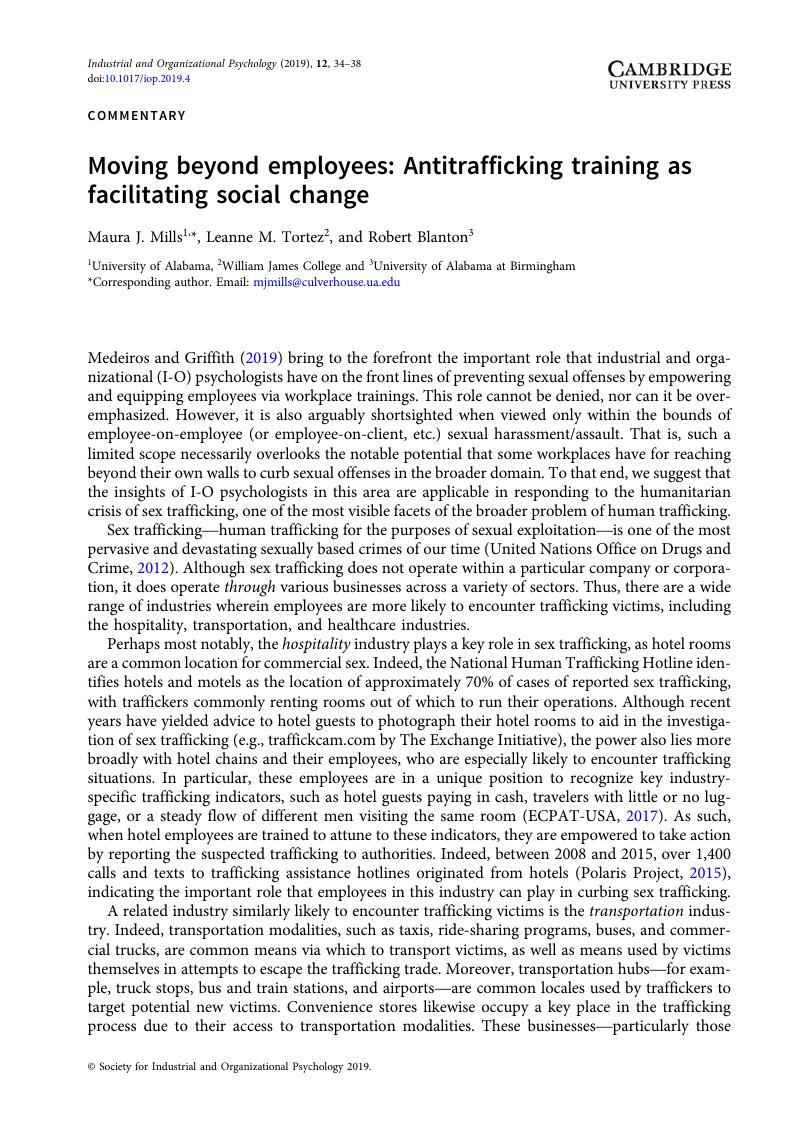Crossref Citations
This article has been cited by the following publications. This list is generated based on data provided by Crossref.
Minor, Katarzyna
and
Heyes, Andy
2022.
The Emerald Handbook of Luxury Management for Hospitality and Tourism.
p.
425.
Dryjanska, Laura
2022.
Paths to the Prevention and Detection of Human Trafficking.
p.
44.
Blanton, Robert G.
and
Jones, Peter A.
2023.
Social construction and the diffusion of anti‐trafficking laws in the U.S..
Policy Studies Journal,
Vol. 51,
Issue. 1,
p.
163.





